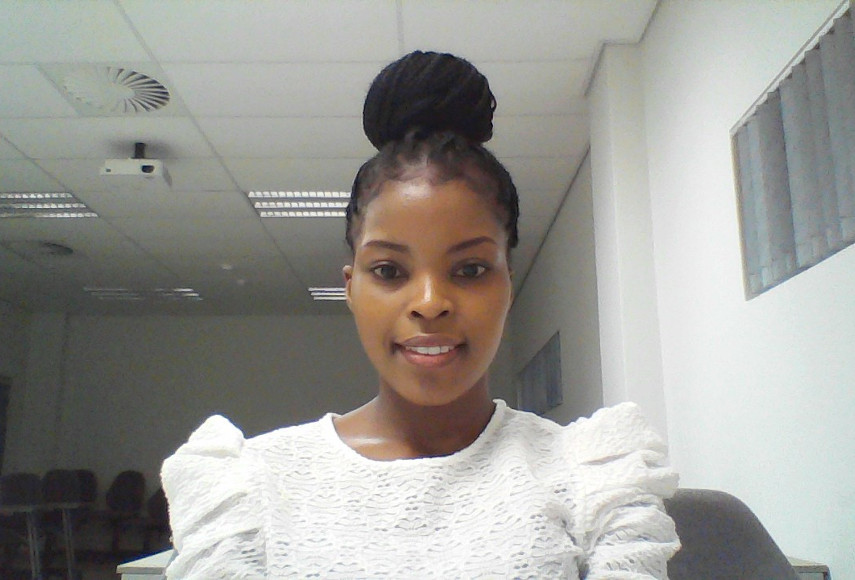“I am overjoyed to know that I am one step closer to being a part of the prestigious Fulbright South African Research Scholar Programme (SARSP), where I will have the opportunity to spend up to 9 months at a university in the United States (US) honing my research skills,” said an elated Nonsikelelo Precious Mthethwa.
Mthethwa, a Doctoral student at the Durban University of Technology (DUT) in the Institute for Water and Wastewater Technology (IWWT), has been selected as one of the semi-finalists for the 2022-2023 Fulbright South African Research Scholar Programme (SARSP), after a long application and interview process.
The South African Fulbright Foreign Student Programme provides grants for South African university graduates to pursue post-graduate studies at a United States university in any subject. for a period of three to nine months. A research grant enables the scholar to perform high-level research at a U.S. educational institution, aimed at strengthening academic programme or curricula at his or her home institution. Applicants need to have a proven track record of productive scholarly research, and publications.
In terms of getting to know of this particular scholarship, Mthethwa said she saw the opportunity through the DUT website and her supervisors, (Prof Sheena Kumari and Dr Dennis Amoah), who encouraged her to apply. She added that the DUT also hosted a workshop on Fulbright (which helped her understand more about the scholarship and application process).
Mthethwa relayed that the next step in the process, entailed her writing the Graduate Record Examination (GRE), (used to determine how prepared a test-taker is for graduate-level coursework) and TOEFL (Test of English as a Foreign Language) computer based assessments which all PhD semi-finalists are expected to complete.
Speaking of the online GRE Workshops from 19 to 26 July 2021, she said that she started and completed an online application for this programme being assisted and advised by her supervisors, (Dr Isaac Dennis Amoah, Poovendhree Reddy, Prof Faizal Bux, and Prof Sheena Kumari). Mthethwa attended an online workshop training offered by the US Embassy which was quite useful in understanding what to expect during the test and how to reach a score of 90 on the IBT (Internet-based Test) required mark.
After the TOEFL, she will wait for the final nomination as a principal candidate to the Fulbright Foreign Student Programme Board for the 2022/2023 academic year. Explaining more on her PhD research studies she has embarked on, Mthethwa conveyed that she aims to utilise her time in the US to gain skills in Next-Generation sequencing and Bioinformatics.
“Next-Generation Sequencing (NGS), also referred to as high-throughput sequencing has been successfully used to obtain valuable information on microbial diversity/activity in various settings, including medical, agricultural, environmental, and others. The amount of data generated by the next-generation sequencing platforms is enormous. Today’s greatest challenge facing the molecular biology community is to make sense of the wealth of data that the NGS platforms have produced,” she said.
Mthethwa further relayed that special bioinformatics software and fast computing systems are needed to process these vast amounts of genomic data. She stressed that the field of NGS and bioinformatics has seen an increased demand for skills in recent years due to the utility of these skills in various industries.
“Therefore, by focusing on this area whilst in the US, I will be gaining expertise in a field that is relevant for my current studies and crucial in my chosen career and South Africa. Given the importance of 4IR technologies that can revolutionise research in this century, bioinformatics could play a critical role in environmental health sector of any country,” she said.
She indicated that her ultimate goal is to manifest her research project addressing real-world Science, Technology, Engineering and Mathematics (STEM), health, water microbiology, and other related issues.
“The project is the solution for the present and the future, this project is aimed at the further development of a technology called Loop-mediated isothermal amplification (LAMP). LAMP is cheaper technology compared to other molecular diagnostic methods, such as the polymerase chain reaction (PCR), used extensively in medical and water laboratories,” she said.
Mthethwa further added that during the current COVID-19 pandemic, the team at IWWT successfully applied this technique for the detection of the SARS-CoV-2 RNA in wastewater.
“Further showing the potential of this method as a cheaper, faster, and easier alternative to PCR for monitoring COVID-19 infections via wastewater-based epidemiology. The plan is to produce the first portable LAMP prototype for field applications in microbial water and food quality testing and medical diagnosis. The aim is to make this technology readily available to all laboratories, especially in resource-constraint areas,” she stressed.
Mthethwa conveyed that these attributes of the project made it stand out among the various projects submitted, as it has the potential to reduce the cost of diagnostics in both the medical, environmental and food sectors. Besides the Fulbright competition, Mthethwa was chosen as one of the top eight students to represent DUT at the regionals of the Entrepreneurship Development in Higher Education (EDHE) Intervarsity 2021 competition. She was selected as the semi-finalist winner from universities across the globe, selected from 33 entries for the 2021 Guangzhou International Sister-City Universities (GISU) Urban Innovation and Entrepreneurship Online Competition.
Her advice to future DUT PhD students is to do their best with any opportunities that come their way. “Be patient and trust the process, learn from other students. Don’t let criticism discourage you. Self-motivation and working closely with your supervisors is critical,” she said.
She indicated that she still has to further undergo the next three processes which are the GRE virtual workshop sessions over the coming weeks from 26 July to 31 August 2021; the semi-finalist workshop and refinement of applications in September 2021; and in October 2021-there will be an announcement of the finalists nominated to the Fulbright Board to participate in the 2022-2023 FFSP.
Pictured: DUT’s Fulbright semi-finalist, Nonsikelelo Precious Mthethwa.
Waheeda Peters


